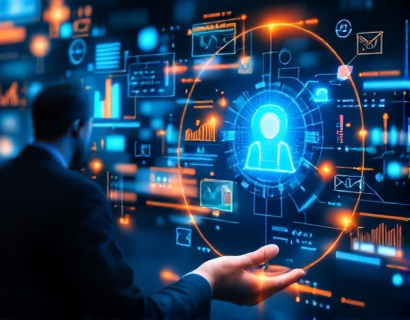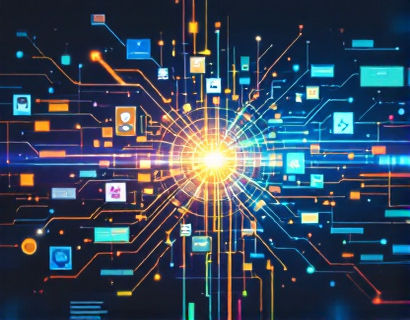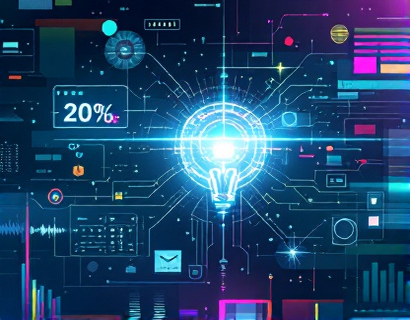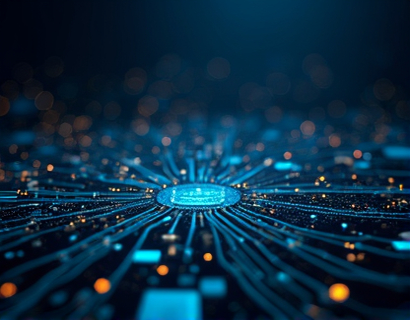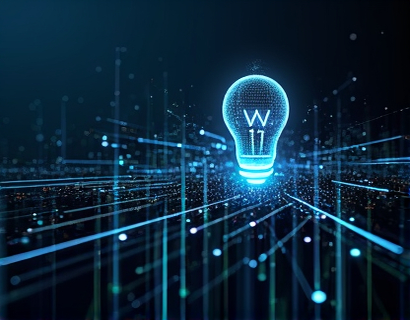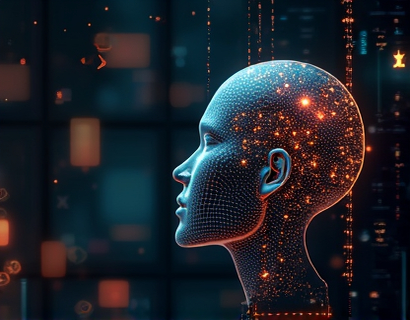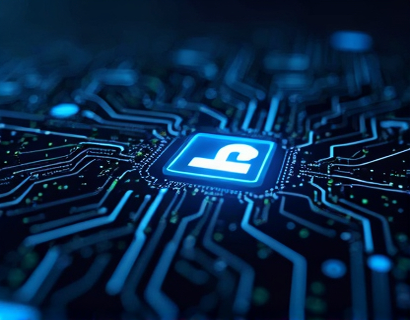Crypto and AI: Pioneering the Future of Digital Engagement
The intersection of cryptocurrency and artificial intelligence (AI) is giving rise to a new era of digital engagement, one that promises to redefine how we interact with technology and each other. This fusion of two of the most transformative technologies of our time is not just a trend but a fundamental shift in the tech landscape. As we delve into this topic, it's essential to understand the individual impacts of crypto and AI before exploring how their convergence is driving innovation and growth.
Understanding Cryptocurrency
Cryptocurrency, often referred to as digital or virtual currency, uses cryptography for security and operates on a decentralized network, typically a blockchain. This technology was pioneered by Bitcoin, launched in 2009 by an unknown entity or group under the pseudonym Satoshi Nakamoto. Since then, thousands of alternative cryptocurrencies, or altcoins, have emerged, each with unique features and purposes. The core principle behind cryptocurrency is to provide a secure, transparent, and tamper-proof method of conducting transactions without the need for intermediaries like banks.
The decentralized nature of cryptocurrencies means that they are not controlled by any single entity, making them resistant to censorship and manipulation. This has significant implications for financial freedom and privacy. Moreover, the use of blockchain technology ensures that all transactions are recorded in a public ledger, which can be verified by anyone, adding a layer of transparency and trust to the system.
Exploring Artificial Intelligence
Artificial intelligence, on the other hand, encompasses a broad range of technologies designed to simulate human intelligence processes by machines, particularly computer systems. These processes include learning (the acquisition of information and rules for using it), reasoning (using rules to reach approximate or definite conclusions), and self-correction. AI is rapidly advancing, with applications spanning from simple chatbots to complex systems that can analyze vast amounts of data to make predictions and decisions.
Machine learning, a subset of AI, plays a crucial role in this evolution. Machine learning algorithms enable systems to learn from data, improving their performance over time without being explicitly programmed. This capability is particularly powerful when combined with large datasets, allowing AI to uncover patterns and insights that would be impossible for humans to detect manually.
Merging Crypto and AI
The convergence of cryptocurrency and AI is creating a synergy that is revolutionizing digital engagement. This integration leverages the strengths of both technologies to create more secure, efficient, and intelligent systems. One of the most significant areas where this synergy is manifesting is in the development of decentralized finance (DeFi) platforms.
DeFi platforms utilize blockchain technology to create financial systems that are open, transparent, and accessible to anyone with an internet connection. AI plays a pivotal role in enhancing these platforms by providing advanced analytics, risk management, and automated trading capabilities. For instance, AI-driven algorithms can analyze market trends and predict price movements, helping users make more informed investment decisions.
Enhanced Security Through AI
Security is a paramount concern in the world of cryptocurrency. AI technologies are being employed to bolster the security of blockchain networks and crypto assets. Machine learning models can detect and prevent fraudulent activities by identifying unusual patterns or behaviors that deviate from the norm. This proactive approach to security helps mitigate risks such as hacking and fraud, which have been significant challenges for the crypto industry.
Moreover, AI can enhance the security of private keys and wallet management. Advanced biometric authentication methods, powered by AI, can provide a higher level of security compared to traditional password-based systems. This not only protects user assets but also improves the overall user experience by simplifying the authentication process.
Smart Contracts and AI
Smart contracts, self-executing contracts with the terms of the agreement directly written into code, are another area where AI is making a significant impact. AI can optimize the execution of smart contracts by analyzing complex data sets and making real-time decisions. This capability is particularly useful in automating processes in various industries, from supply chain management to real estate transactions.
For example, AI can be used to verify the authenticity of documents required for a smart contract, ensuring that all conditions are met before the contract is executed. This not only increases efficiency but also reduces the potential for human error and fraud.
Personalized User Experiences
One of the most exciting applications of AI in the crypto space is the creation of personalized user experiences. By analyzing user behavior and preferences, AI can tailor recommendations and services to individual needs. In the context of crypto, this means that users can receive customized investment advice, portfolio management, and market insights.
For instance, AI-powered chatbots can engage with users, providing real-time updates on market conditions, suggesting trades based on AI-generated strategies, and offering educational content to help users make informed decisions. This level of personalization not only enhances user engagement but also fosters a more inclusive and accessible crypto ecosystem.
Decentralized AI Platforms
The integration of AI with decentralized technologies is giving birth to decentralized AI platforms, which aim to democratize access to AI resources and capabilities. These platforms allow developers and researchers to access powerful AI tools and compute resources without the need for centralized control. This democratization is crucial for fostering innovation and ensuring that the benefits of AI are widely distributed.
Decentralized AI platforms can also address concerns related to data privacy and ownership. By leveraging blockchain technology, these platforms can ensure that data is securely stored and that users retain control over their data. AI models can be trained on decentralized data sets, further enhancing the robustness and fairness of AI systems.
Challenges and Considerations
While the potential of combining crypto and AI is immense, there are several challenges and considerations that need to be addressed. One of the primary concerns is the regulatory landscape. The crypto industry is still navigating a complex web of regulations, and the integration of AI adds another layer of complexity. Ensuring compliance with existing laws while advocating for supportive regulatory frameworks is crucial for the sustainable growth of these technologies.
Another challenge is the technical integration of AI with blockchain systems. Blockchain's inherent limitations, such as scalability and transaction speed, can pose obstacles to the seamless implementation of AI solutions. Researchers and developers are actively working on overcoming these challenges, but it remains an ongoing effort.
Future Prospects
Looking ahead, the synergy between crypto and AI is poised to drive significant advancements in various sectors. In finance, the combination of these technologies can lead to more efficient, secure, and accessible financial services. In healthcare, AI-driven analytics on blockchain-based health records can enhance patient care and research. The potential applications are vast, and the future looks promising.
As the tech community continues to explore and innovate at the intersection of crypto and AI, we can expect to see more groundbreaking solutions that enhance digital engagement and drive growth. For tech enthusiasts and professionals, this is an exciting time to be part of a field that is constantly evolving and pushing the boundaries of what is possible.



